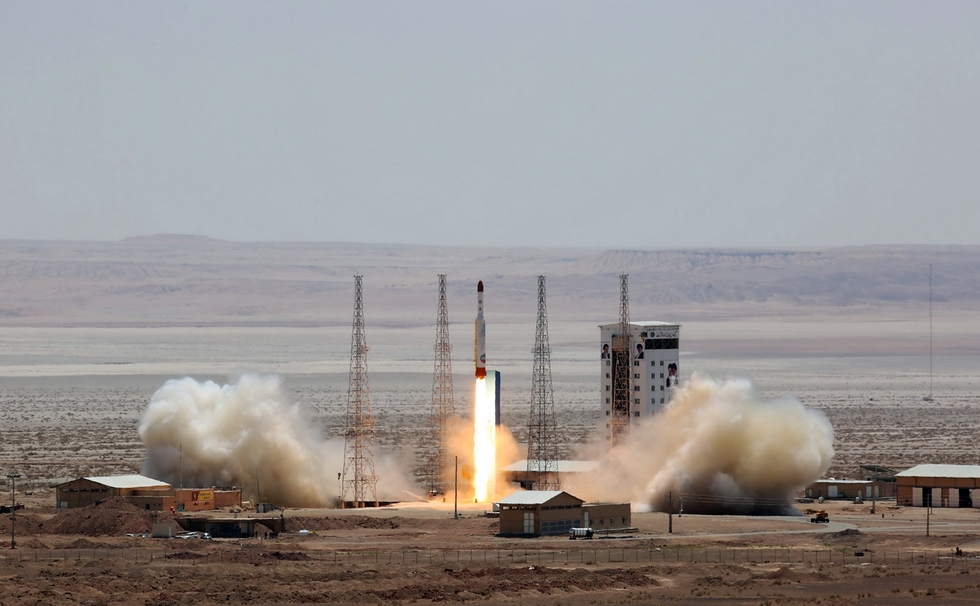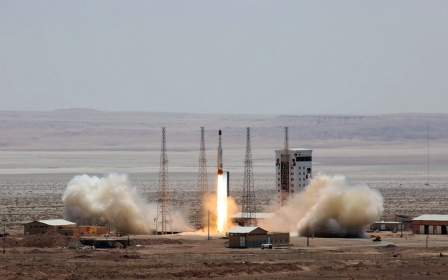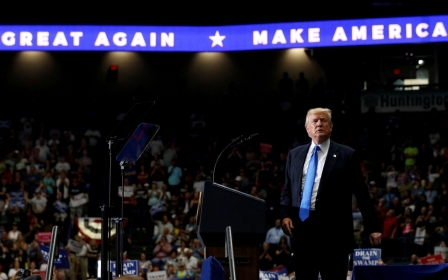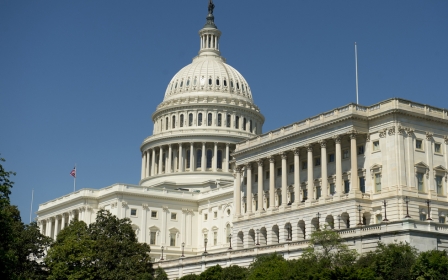US adds sanctions against Iran's missile programme after rocket launch

The United States imposed sanctions on Friday on six subsidiaries of a company key to Iran's ballistic missile programme, citing continued "provocative actions", including Tehran's launch the previous day of a rocket capable of putting a satellite into orbit.
A joint statement on Friday from the United States, France, Germany and Britain said the launch was inconsistent with a UN Security Council resolution calling on Iran not to conduct such tests.
The US Treasury's Office of Foreign Assets Control imposed sanctions on six Iranian firms owned or controlled by the Shahid Hemmat Industrial Group. The move enables the US government to block any company property under its jurisdiction and prevents US citizens from doing business with the firms.
"These sanctions ... underscore the United States’ deep concerns with Iran’s continued development and testing of ballistic missiles and other provocative behavior," Treasury Secretary Steve Mnuchin said in a statement.
"The US government will continue to aggressively counter Iran’s ballistic missile-related activity, whether it be a provocative space launch ... or likely support to Yemeni Houthi missile attacks on Saudi Arabia such as occurred this past weekend," Mnuchin said.
Iran on Thursday successfully tested a satellite-launch rocket, days after warning Washington of a response to new US sanctions over the Islamic Republic's ballistic missile programme, state television said.
It said the launch vehicle, named Simorgh after a bird in Iranian mythology, was capable of propelling a satellite weighing 250kg to an altitude of 500km above Earth.
The six Shahid Hemmat units targeted by the US sanctions manufacture missile components, missile airframes, liquid-propellant ballistic missile engines, liquid propellant, guidance and control systems. They also do missile-related research and maintenance.
The Treasury move was announced just hours after the US Senate voted almost unanimously to impose new sanctions on Iran, Russia and North Korea.
The measure put President Donald Trump, who has sought better ties with Russia, in a tough position, forcing him to either sign the bill into law or anger his party by vetoing it.
The sanctions in that bill also target Iran's missile development programmes as well as human rights abuses.
The State Department charged on Thursday that Iran's test of the satellite launch vehicle was a violation of UN Security Council resolutions as well as the spirit of the multinational Iran nuclear deal, under which Tehran agreed to curb its nuclear programmes in exchange for a lifting of some economic sanctions.
Washington's ambassador to the United Nations, Nikki Haley, said the Trump administration would continue to impose consequences on Iran until it complies fully with UN resolutions.
"The issue with Iran always comes back to mistrust. Iran’s widespread support for terrorists tells us we can’t trust them. Iran’s breaking its obligation on missile testing tells us we can’t trust them. Yesterday’s launch proves that yet again," she said in a statement.
The Trump administration certified Iran as being in compliance with the nuclear deal last week, even though Trump has called the agreement negotiated by his Democratic predecessor "the worst deal ever."
Trump issued a veiled threat against Iran earlier this week, warning Tehran to adhere to the terms of the nuclear accord or face "big, big problems." He said in a speech in Ohio that the deal had "emboldened" Iran and added "that won't take place much longer."
New MEE newsletter: Jerusalem Dispatch
Sign up to get the latest insights and analysis on Israel-Palestine, alongside Turkey Unpacked and other MEE newsletters
Middle East Eye delivers independent and unrivalled coverage and analysis of the Middle East, North Africa and beyond. To learn more about republishing this content and the associated fees, please fill out this form. More about MEE can be found here.




